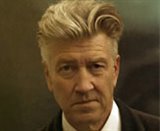- Home
- David Lynch
David Lynch

Born in Missoula, Montana, David Lynch relocated to Idaho with his family temporarily before moving to Washington, where he spent the rest of his early childhood. By the time he hit his high school years, his family relocated once again to Virginia.
Although Lynch's childhood was a peaceful and enjoyable one, he was uncomfortable with his upbringing. "My parents didn't drink, they didn't smoke and they never argued. And I wanted them to smoke, I wanted them to drink, I wanted them to argue, but they never did. I was ashamed of my parents for being the way they were. I wanted to have strange things happen in my life. I knew nothing was as it seemed, not anywhere, but I could never really find proof of it. It was just a feeling."
From his mid-'teens to his early '30s, Lynch rebelled against his parents who supported his art, though they didn't understand it. At age 15, he thought of becoming an artist. As a child he wasn't given coloring books, so he drew on blank pieces of paper. After high school, he headed for Boston's Museum school, and by the end of his first year, he took off to travel across Europe. With no interest in going back to the Boston Museum school, his parents, disappointed by his decision, cut him off from their money. He was forced to find work, and went through years of quitting or being fired from odd jobs.
Eventually he had little choice but to go back to school, and he attended Pennsylvania Academy of Fine Arts. His spare time was spent trying to live like a painter. After marrying a fellow art student, having a daughter and buying a house, Lynch started filming. He worked on experimental films and won awards for his creativity. He was soon given a grant by the AFI to make a film, and he used his own house as a studio. In 1970 he was accepted into the AFI's Centre for Advanced Film Studies.
The next few years were filled with turmoil as he was forced to make his film Eraserhead into a feature, which he felt ruined the film; he and his wife separated; and he lived illegally on one of his sets. To get his films done on the small grants given to him, he worked odd jobs to help pay the cost.
After getting married to his second wife in 1977, Lynch took a two-year hiatus before returning to film where he turned the real-life story of a man deformed with Proteous Syndrome into the classic, The Elephant Man. Lynch exposed undercurrents of metaphysical anguish and absurdist fear, but the accessible humanity within John Merrick's tale made the film a box-office success and earned it eight Academy Award nominations, including Best Director and Best Screenplay nominations for Lynch.
Lynch was offered the job to direct Star Wars: Return of the Jedi, but passed to work on another sci-fi cult hit, Dune (1985). Although the film opened to become a box office failure, it received many fans through the later years. Following the much talked about Blue Velvet (1986), Lynch decided to take a chance at television, directing the series Twin Peaks in 1990. The popularity of the show led Lynch to make it into a movie, Twin Peaks: Fire Walk With Me (1992).
His only career highlight for the rest of the '90s was his film, The Straight Story which had its star actor, Richard Farnsworth, nominated for Best Actor by the Academy Awards, earned him a BAFTA award for best foreign film and oodles of other awards and nominations from film festivals around the world. He did it again a few years later with the feature, Mulholland Drive (2001), which was again praised throughout the world and earned him his third Academy Award for Directing.
Lynch has three children, one from each of his marriages and one from an affair with film editor Mary Sweeney.
Filmography (director):
Twin Peaks: The Missing Pieces (2014)
To Each His Own Cinema (2007) - (segment "Absurda")
Inland Empire (2006)
Darkened Room (2002)
Mulholland Drive (2001)
The Straight Story (1999)
Lost Highway (1997)
Lumière et compagnie (1995)
Twin Peaks: Fire Walk with Me (1992)
Wild at Heart (1990)
The Cowboy and the Frenchman(1989)
Blue Velvet (1986)
Dune (1984)
The Elephant Man (1980)
Eraserhead (1977)